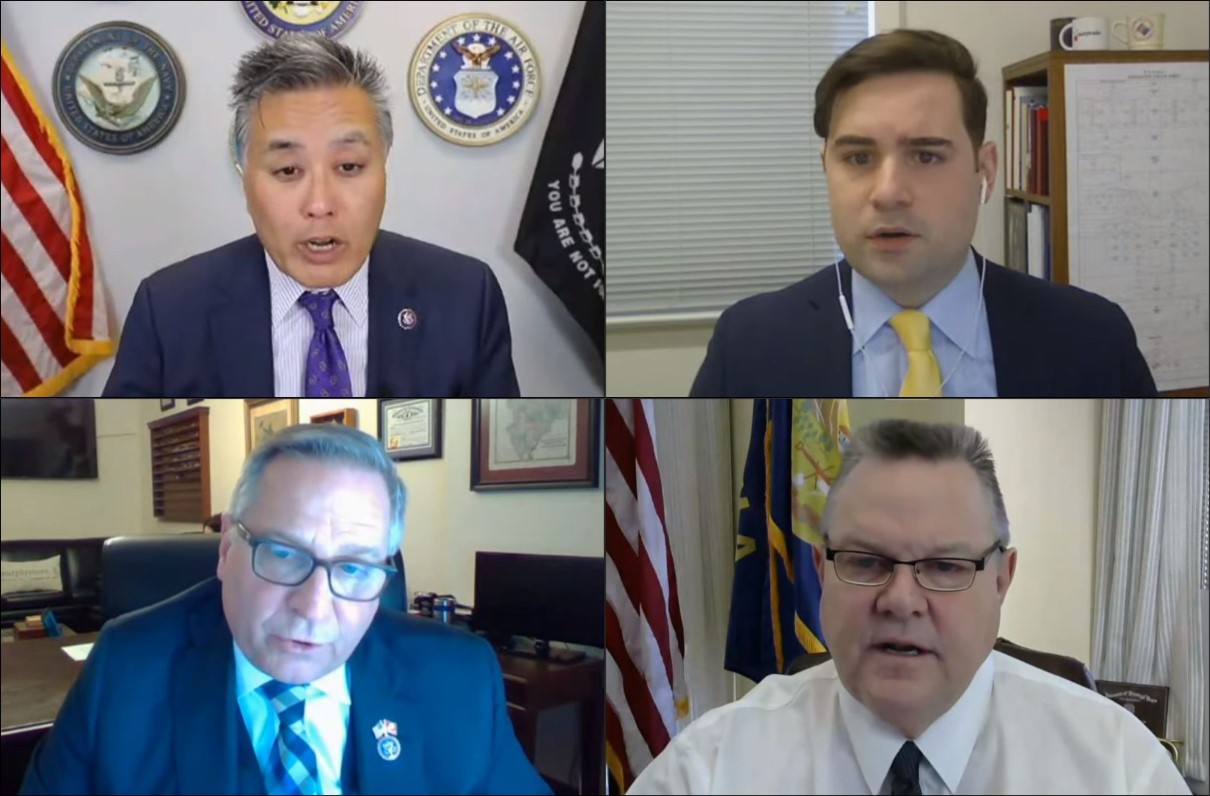MOAA is looking out for veterans’ access to health care – a topic increasingly important as the COVID-19 pandemic continues to stifle daily life across the country.
Cory Titus, MOAA’s director of government relations for veteran benefits and Guard/Reserve affairs, outlined the association’s legislative priorities for the VA during a joint Veterans Affairs Committee virtual session on Wednesday. MOAA is advocating for examining the department’s COVID-19 response, eliminating health disparities for women and minorities, and passing comprehensive toxic exposure reform, among other priorities.
“My experience, thus far, has been the VA at its best,” said Titus, who served in the Army for seven years. “However, not all have enjoyed the same care as I. MOAA’s members, soldiers I served with and even members of my family have not had that same experience. We need to keep going and create equity for all veterans to enjoy the same quality experience and access to benefits and care regardless of their gender, race, location, or generation of service.”
(The above video should queue to MOAA's opening testimony; watch the full hearing at this link.)
[RELATED: Advocacy in Action: Details on MOAA’s Spring Campaign]
MOAA was one of seven groups testifying during the hearing, joining the Blinded Veterans Association, Disabled American Veterans, Minority Veterans of America, National Association of State Directors of Veterans Affairs, National Coalition for Homeless Veterans, and Student Veterans of America to offer advice and priorities to members of the House and Senate.
The joint committee is responsible for approving and funding programs for veterans, such as health care at VA centers to education stipends through the Post-9/11 GI Bill.
Rep. Mark Takano (D-Calif.), chairman of the House Veterans Affairs Committee, said the hearing provides an opportunity for lawmakers to hear directly from veterans on their needs.
“This is one platform that allows us to her many voices,” Takano said. “This point is incredibly important as we face the challenge of a global pandemic. And it gives us the opportunity to discuss ways to build better veterans programs that can overcome the difficulties of future crises and address problems for all veterans.”
[RELATED: MOAA President, Key House Lawmaker Discuss Legislative Priorities]
Takano lauded the efforts of veterans service organizations (VSOs) that work with the committee, noting there were several recent victories for veterans, including laws expanding benefits to Vietnam-era Blue Water Navy veterans and offering more support to women veterans.
MOAA’s priorities are focused on improving services in the Veterans Health Administration, which oversees the VA’s health care facilities, and Veterans Benefits Administration, which includes a wide range of benefits, such as disability compensation and transition programs.
One of the recommendations made by MOAA is for the VA to examine every aspect of its COVID-19 response. The VA should conduct the exam through a range of demographics, then apply lessons learned to improve support to veterans.
“With a third vaccine now approved for emergency use, optimism continues to grow as an end to the pandemic seems near,” Titus said. “VA quickly moved to expand the VA workforce to meet the health crisis – one of many positive steps. However, vulnerabilities were also exposed like in state veterans’ homes and VA community living centers.”
Another of MOAA’s recommendations was to eliminate disparities for women and minority veterans.
Women will make up about 19% of the department’s patients by 2025, making women the fastest growing population of veterans, according to the VA. MOAA recommends eliminating health disparities for women and minority veterans to assure timely access to compassionate, quality care, Titus said.
[RELATED: VA Under New Leadership: How the New Secretary’s Priorities Align With MOAA’s]
“Women transitioning out of uniform face unique challenges because of their experiences in service,” Titus said. “While VA has implemented a comprehensive primary care model for women, there remain several barriers to getting the care and services they need. Additionally, according to the [Government Accountability Office], the VA has taken steps to reduce disparities in health care outcomes linked to race and ethnicity, but lacks the mechanisms to measure progress and ensure accountability.”
Finally, MOAA recommended Congress pass comprehensive toxic exposure reform that would concede exposure, expand access to health care through the TEAM Act, and improve the reporting requirements for presumptive conditions to ensure they are helping veterans the way they are intended.
Comprehensive toxic exposure reform will be one of MOAA’s topics in the upcoming Advocacy in Action, the association’s rebranded annual event to meet with federal lawmakers on veteran legislation.
MOAA’s legislative priorities for the VA in 2021:
- Strength and modernize VA’s workforce.
- Eliminate health disparities for women and minority veterans to ensure health equity in accessing timely, compassionate, and quality care.
- Expand access to caregiver, palliative care, geriatric care, extended care, and hospice programs and services for veterans and wounded warriors, and their caregivers.
- Improve veteran suicide prevention programs and increase access to behavioral health care services.
- Improve medical exam and claims processing to meet pandemic-related and enduring challenges.
- Support our nation’s economic recover through increased educational opportunities and protections to get veterans back to work.
- Pass comprehensive toxic exposure reform.
- Strengthen and protect service-connected disability compensation.
MOAA offered details on all of the above priorities in written testimony to the joint committee. Read the full testimony at this link.
MOAA Knows Why You Serve
We understand the needs and concerns of military families – and we’re here to help you meet life’s challenges along the way. Join MOAA now and get the support you need.

